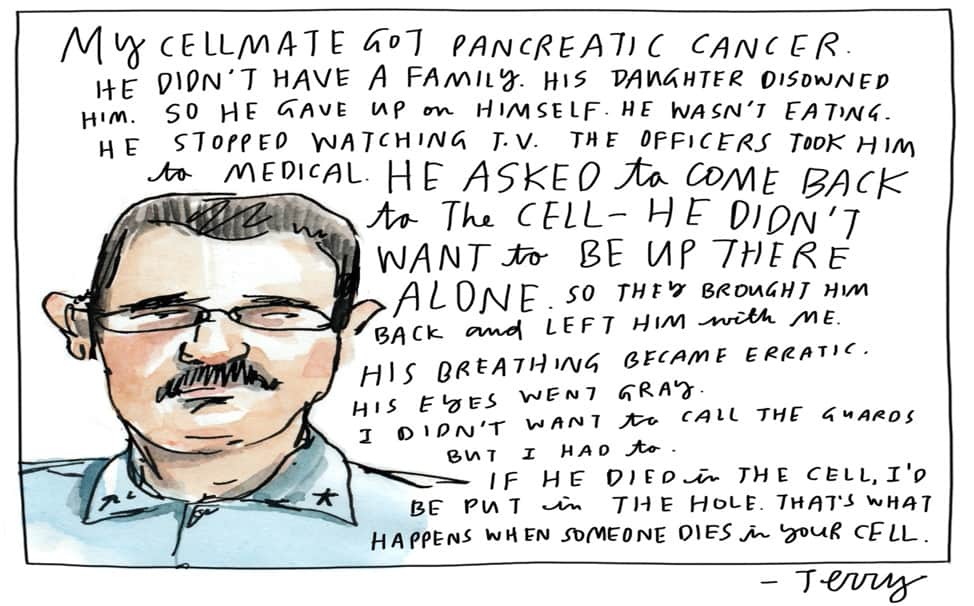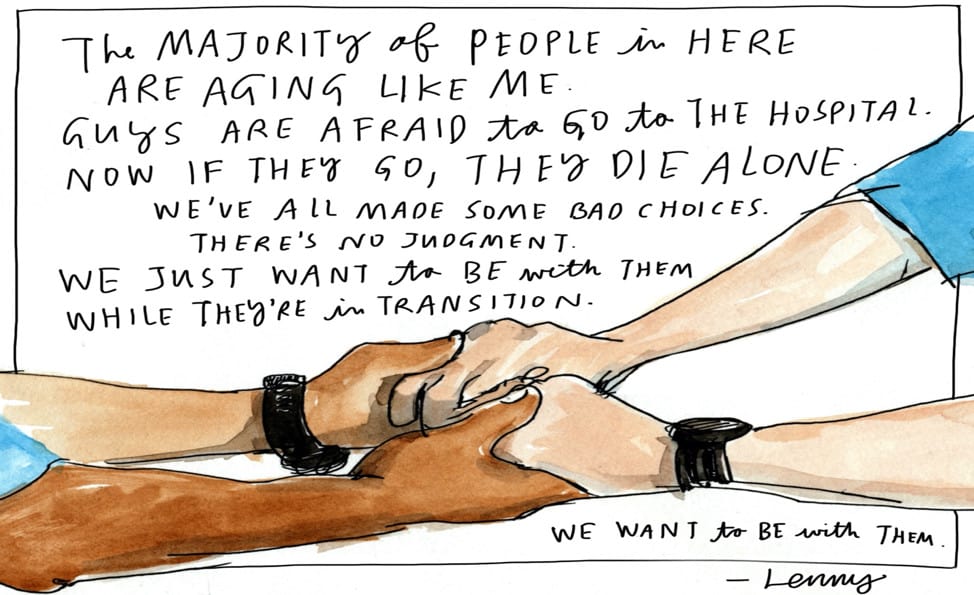by Lisa Deal, RN, MPH, ScD, Executive Director of Humane Prison Hospice Project
In this article, Commonweal Humane Prison Hospice Project’s new executive director, Lisa Deal, tells the story of her connection to the important work of giving a voice to those who are dying while incarcerated—some of the most vulnerable and wounded people in our society.
***
I am settling into my new role as executive director of Humane Prison Hospice Project. Though the story of this heart-giving organization is really not yet mine to tell, I’ll share my own journey, as well as what I know is ahead with the project to ensure that aging, suffering, and dying is less lonely, more comfortable, and more dignified for those in prisons throughout California and beyond.
The spark that first ignited my passion for supporting humane, dignified, and compassionate care for terminally ill inmates started back in Boston in 1988. As a relatively new nurse, I worked providing home care to men suffering and dying of AIDS. Back then, AIDS was a death sentence. Many, even those in the healthcare field, were fearful of being around and caring for those inflicted with this disease. I found working with them to be a gift, though, and loved hearing about their life and their struggles, which often involved drug abuse, violence, and incarceration. They taught me a great deal about what it feels like to be ostracized in society, and about pain, humility, and what it means to be human. Working with these wounded and hurting men was a gift, and one of the most humbling experiences I’ve had in my life.
Fast forward to 2017 when I was working as chief clinical officer at Mission Hospice in San Mateo. A colleague came to me about supporting a relatively new organization—Humane Prison Hospice Project—whose mission was to bring hospice care into prisons by training a group of inmates to be compassionate end-of-life caregivers for their dying friends and cellmates. That was when I met the Humane team, and learned of the compelling work that this amazing band of advocates was doing at San Quentin. During the next two years, Mission Hospice shared our volunteer training material, our volunteer coordinator helped support the inmate training, and we provided hospice volunteer certificates to those prepared as end-of-life caregivers.
I learned from the Humane team that, because of tough sentencing laws during the past several decades, burgeoning numbers of aging prisoners were suffering, sick, and dying behind bars. These individuals typically die either isolated in their cold concrete cells, or alone, often chained to a bed, in the prison infirmary, while their cellmates are sent to solitary confinement until the cause of death is confirmed. Prison medical, custodial, and security staff are not trained to deliver palliative end-of-life care. Across California’s 35 prisons, only two have dedicated hospice beds.
Humane has a cost-effective model to change this, so that those who are incarcerated are treated with the compassion, care, and kindness that every human being deserves at the end of life. Since 2017, Humane has trained 14 San Quentin inmates—who had already gone through a peer support program called Brother’s Keepers—how to be at the bedside of their dying peers and how to provide empathetic and compassionate comfort care. This model of care is transformative, both for the one dying and for the inmate providing the care. As one of our Brother’s Keepers shared about his experience sitting with a dying peer:
“His dying made me start to change. He was my friend. The person who took care of him, that was a good part of me.”
Humane is now ready to take our model—training prisoners to be caregivers for the dying in place—to other prisons in California and across the country, to help them train a cadre of inmates to provide this care, and to develop integrated hospice programs. One by one, we hope to ensure that all individuals behind bars, no matter what they’ve done in their wounded lives, leave this world feeling cared for and with dignity.
Simultaneous to this grassroots effort, Humane also works from the top down to increase public awareness, change attitudes, and advocate for policy changes that support our vision. Through public speaking at conferences and forums, and before legislators and key policy makers, it is our hope that, someday, laws will be in place that mandate hospice care as a basic right for everyone who is dying behind bars.
As I find myself in this role as Humane’s executive director today, I am excited and humbled by the amazing work our team has done these past five years bringing voice to some of the most vulnerable and hurting in our society. This work has already changed me in powerful ways, as I know it has for all of the staff here. Yet the true heros in this movement are the individuals who are sitting alongside and caring for their dying peers.
As one of our staff shared in a recent presentation before the United Nations Working Group on Aging, “Every time someone dies in prison in chains, we lose a bit of our humanity.” Those who we train—and this movement which is gaining momentum nationally—work to restore that humanity.
You can find out more about Humane Prison Hospice Project and their work on their website: humaneprisonhospiceproject.org.
The drawings above are from an article written and illustrated by Wendy MacNaughton, who is the back-page columnist for the award winning California Sunday Magazine. This illustrated journalism appeared in the magazine in 2018. Wendy is trained as a social worker and spent many months as the artist in residence at a hospice house in San Francisco.

